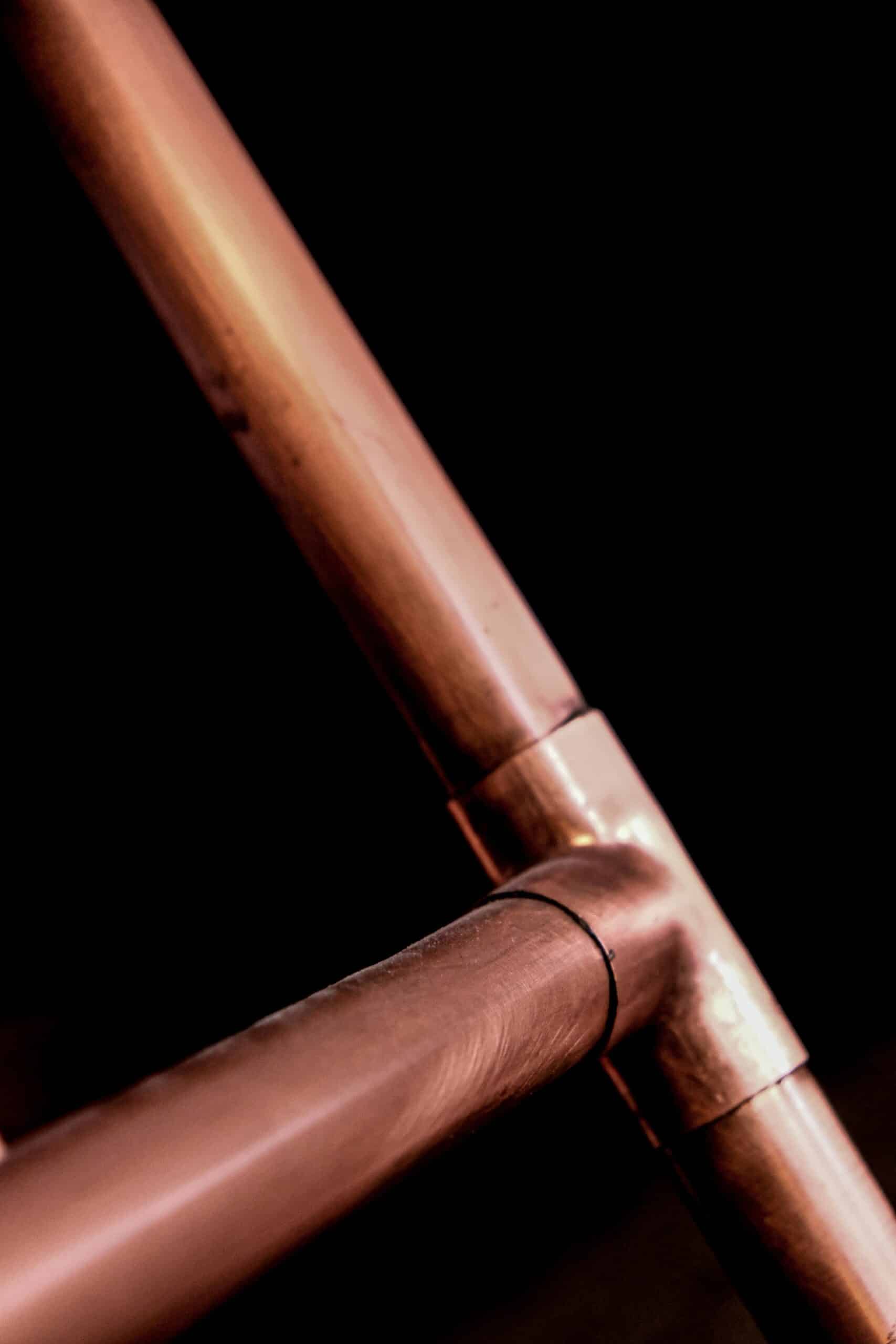If you own an older home in Atlanta, chances are your plumbing system uses copper pipes—or a mix of older materials that have seen better days. When it’s time to repipe, one big question always comes up: Are PEX pipes better than copper?
At Fix & Flow Plumbing, we help homeowners make the right choice for their home’s long-term plumbing health. Below, we’ll break down how PEX and copper compare in cost, durability, performance, and suitability for Atlanta’s climate.
What Are PEX Pipes?
PEX (cross-linked polyethylene) pipes are flexible, durable plastic tubing designed for residential and commercial plumbing systems. They’ve become a popular alternative to copper because they’re easier to install, resist corrosion, and handle both hot and cold water efficiently.
What Are Copper Pipes?
Copper has been a plumbing staple for decades. Known for its strength and resistance to bacteria, copper is still used in many homes across Atlanta. However, it’s more expensive and labor-intensive to install than modern options like PEX.
PEX vs. Copper: A Detailed Comparison
1. Durability
PEX is highly resistant to corrosion, scaling, and pinhole leaks—common issues that affect older copper lines. Because PEX expands slightly, it can better withstand freezing temperatures and pressure changes, reducing the risk of burst pipes during Atlanta’s colder months.
Copper, on the other hand, is sturdy but can deteriorate over time due to acidic water, corrosion, or age-related wear. It’s also more vulnerable to freezing damage.
2. Cost
PEX is typically 30–50% cheaper than copper, both in material and labor costs. The flexibility of PEX means fewer fittings, less cutting, and faster installation—saving you money and time during repiping projects.
Copper prices fluctuate with the metal market, and installation usually takes longer, especially in homes with complex layouts.
3. Water Quality
Copper naturally resists bacterial growth, making it one of the cleanest materials for drinking water. However, it can sometimes give water a metallic taste and may leach small amounts of copper into the water if pipes corrode over time.
PEX doesn’t corrode or rust, but low-quality or improperly installed PEX can sometimes absorb outside odors. When installed correctly by licensed plumbers, this risk is minimal.
4. Noise
PEX pipes are quieter. Because they’re flexible, they absorb water hammer (the banging noise when water flow suddenly stops). Copper, being rigid, can amplify sound through your walls when water moves quickly or stops abruptly.
5. Installation and Maintenance
PEX’s flexibility allows it to snake through walls and around corners with minimal fittings, reducing potential leak points. That makes it ideal for bathroom remodels or full appliance upgrades where plumbing needs to be re-routed.
Copper requires precise cutting, soldering, and more extensive access to walls and floors, making it less adaptable for retrofit projects.
Environmental Considerations
PEX production uses less energy than copper mining and manufacturing, making it more eco-friendly. However, copper is recyclable and has a longer lifespan when properly maintained.
Both materials are safe for drinking water, and both can be part of a sustainable plumbing system when installed by professionals.
When to Choose PEX
PEX is ideal if you’re:
- Upgrading an older home with complex plumbing layouts
- Replacing old galvanized or copper lines prone to leaks
- Looking for a cost-effective repipe solution
- Planning a bathroom or kitchen remodel
It’s especially popular for new construction and renovations due to its speed of installation and flexibility.
When to Choose Copper
Copper is still a great choice for homeowners who want a time-tested material with proven reliability. It’s best suited for:
- Homes with high water pressure
- Areas with stable water chemistry (low acidity)
- Projects where long-term resale value is a priority
In some cases, a hybrid system combining both copper and PEX is the most practical solution—PEX for flexibility and copper for main lines or outdoor sections.
Which Is Better for Atlanta Homes?
In Atlanta’s humid climate and varying soil conditions, PEX often comes out ahead for most residential applications. It’s resistant to corrosion from the region’s water chemistry, handles freezing better, and keeps installation simple and affordable.
However, every home is different. A professional plumbing inspection is the best way to determine whether PEX, copper, or a combination of both is right for your plumbing system.
Ready to upgrade your home’s plumbing with confidence? Contact Fix & Flow Plumbing Co. for expert advice and a transparent quote on PEX or copper pipe replacement.
Frequently Asked Questions
How long do PEX pipes last compared to copper?
PEX pipes typically last 40–50 years, while copper can last 50–70 years depending on water quality and maintenance. PEX often lasts longer in corrosive water environments.
Are PEX pipes safe for drinking water?
Yes. Modern PEX piping meets all safety standards set by the U.S. Environmental Protection Agency (EPA) for potable water systems.
Can PEX be used for outdoor plumbing?
PEX can be used outdoors if it’s properly insulated and protected from UV rays. For above-ground or exposed areas, copper is typically recommended.
